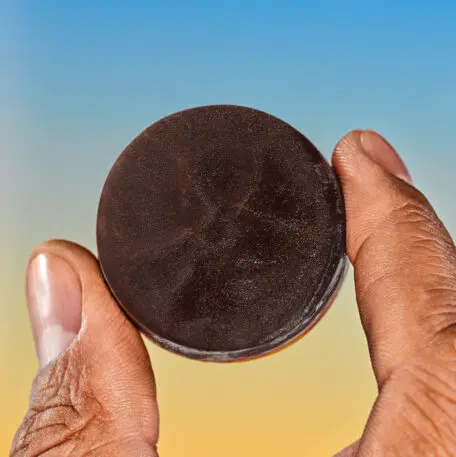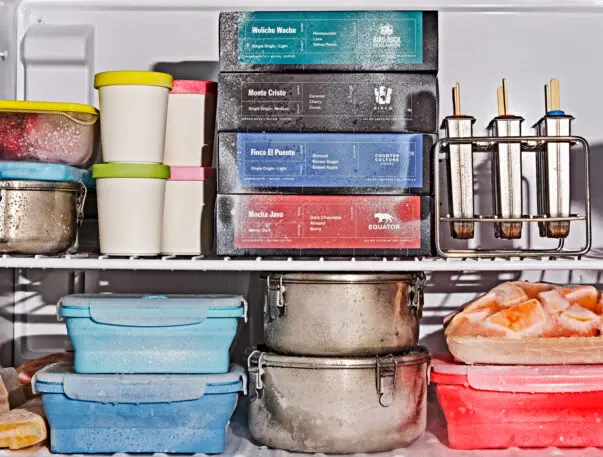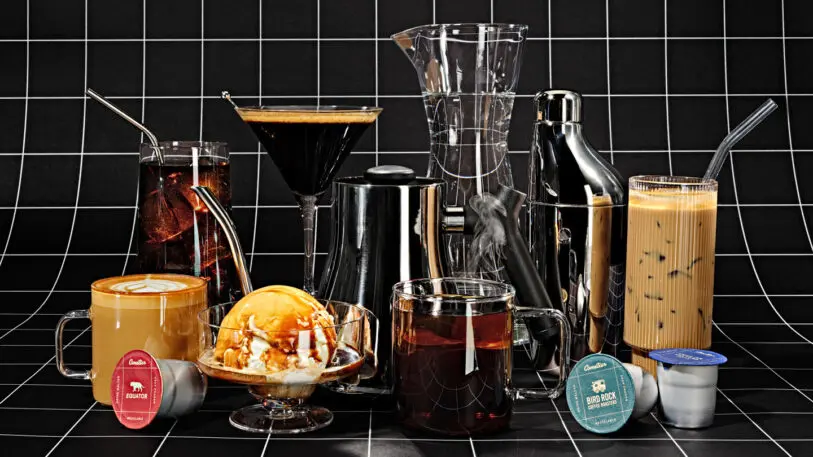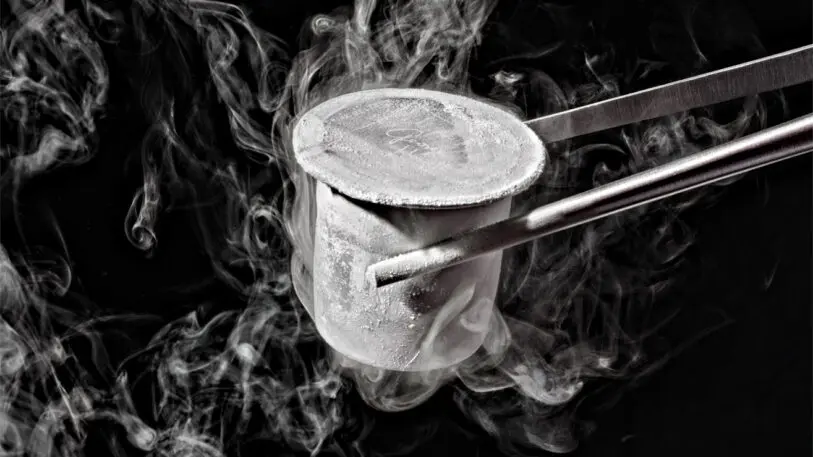A coffee startup called Cometeer, made up of MIT-trained chemists and engineers, has invented a new way to drink coffee from your favorite craft brands at home. The coffee—from brands like Equator, Counter Culture, Joe Coffee, and Birch—arrives at your door in the form of frozen pucks, packaged in dry ice, that you stick in your freezer. When you’re ready to drink it, you pop a puck into your cup, then fill it with boiling water, like some kind of fancy instant coffee. (You can also make it iced, with a splash of milk, or as a latte.) The company promises that the end result retains all the complex flavors of the bean, as if a coffee expert had brewed it for you, at only $2 a cup, compared to the $5 you might pay at a coffee shop.

“The best coffee has more flavor compounds than the best glass of wine,” says Matthew Roberts, co-founder and CEO, who began building Cometeer five years ago. “But a lot of those compounds don’t actually make it into the consumer’s cup. Until I got into coffee, I thought it was just a bitter base for my cream and sugar.”

“It’s often a revelation when someone really tastes good coffee for the first time,” says George Howell, one of the country’s best-known specialty roasters and an adviser to Cometeer. “Milk and sugar often mask the flavor of the coffee. But once you begin to appreciate the flavors contained in the bean, many people want to drink it black.”

“We’re a technology company in the coffee industry,” he says. “We’re a platform that allows independent farmers and roasters to share their craft, by unlocking the full flavor of the coffee.”
Roberts hired a team of scientists and brought on Howell as an adviser. Under the company’s CTO, the team invented machinery that grinds, brews, freezes, and packages the coffee into pucks. Freshly roasted coffee beans arrive at the Cometeer factory in Massachusetts from roasters around the country. The beans are then precisely ground into uniform particles that optimize flavor and aroma. They then brew the coffee into a liquid extract which is flash-frozen in nitrogen at minus 321 degrees Fahrenheit to lock in the flavors. The pucks are then shipped to the customer in aluminum capsules that look like Nespresso pods. After use, the capsules can go into the curbside recycling bin. For $64, customers can buy 32 pucks, picking from a list of specialty coffee roasters.

Cometeer also has a tough road ahead in its effort to break through in the competitive world of craft coffee. Consumers who are aware of the complexities in coffee flavor likely already know how to make it themselves or have a favorite coffee shop where they buy it. As for the rest of us who don’t have trained palettes: Cometeer will have to convince us to try this new approach, which is more expensive than other quick coffee methods on the market. Coffee drinking tends to become a habit, and consumers get used to their particular approach to making their morning drink even if it isn’t perfect.
Despite these challenges, players in the craft coffee industry appear to be welcoming Comeeteer into the market. The company has raised $50 million in VC funding, which will help it scale quickly and begin marketing to consumers. It is using part of this investment to expand its operations. Cometeer operates out of a 70,000 square foot facility in Gloucester, Massachusetts.
Cometeer unveils its website today in pilot mode and expects to be fully up and running by early 2021; in time, Roberts hopes to expand into brick-and-mortar locations, including grocery stores.
Recognize your brand’s excellence by applying to this year’s Brands That Matter Awards before the early-rate deadline, May 3.
